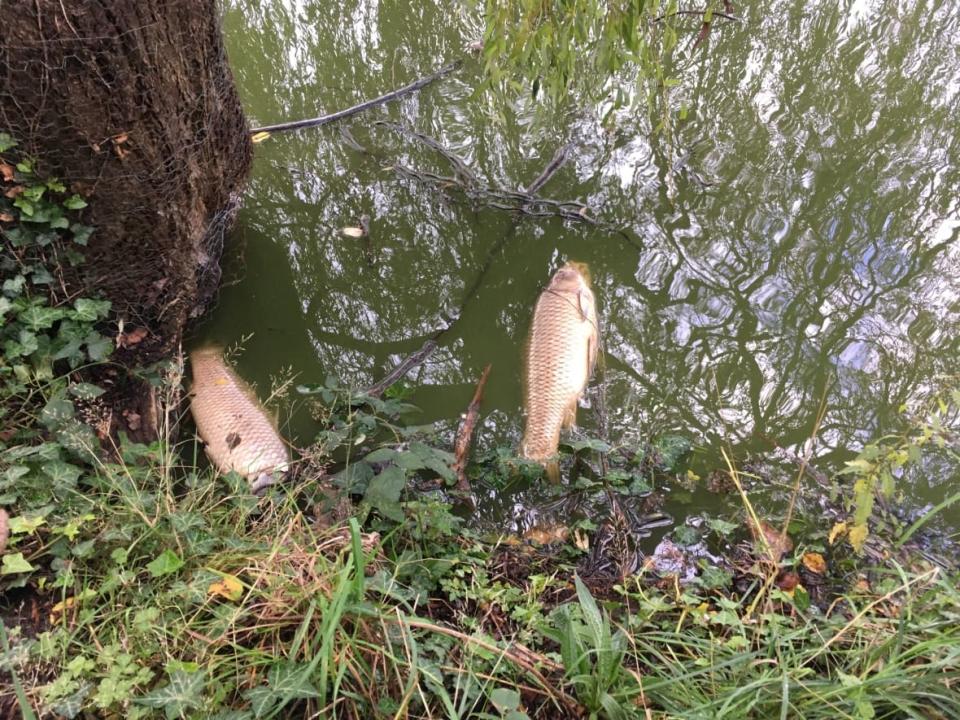Vancouver officials unable to pinpoint what caused fish die-off in park lagoon

Officials with Vancouver's Board of Parks and Recreation say they have been unable to pinpoint exactly what caused multiple fish to die in Stanley Park's Lost Lagoon.
Following heavy rains in mid-September, dozens of carp, a bottom-feeding invasive species, began appearing at the surface of the water and along the shoreline.
A statement from the Parks Board does not say how many carp died, but that necropsies of some of the fish did not reveal an exact cause.
Officials believe that the die-off is related to water quality in the lagoon, which was originally a tidal mud flat and only became a freshwater lagoon when the Stanley Park causeway was built in 1938.
The Park Board statement says the lagoon has low oxygen levels for aquatic life and high salinity from nearby Coal Harbour.
It also says that heavy rains over the weekend of Sept. 18, following a dry summer, may have disturbed the lagoon in a way that further decreased oxygen levels for the fish.
Greater ecological problem
The Park Board says the die-off is a symptom of a greater ecological problem with the artificial lagoon that was created for recreation and aesthetic purposes.
"Because it is isolated, infilling, and now only approximately a metre deep (with much of the shoreline non-naturalized), it is considered an ecologically poor habitat, vulnerable to sea level rise and other events," said the statement.
The Park Board and the Stanley Park Ecology Society says plans are underway to restore the lagoon.
"In order to restore the area to the point where ecology is its primary function, significant infrastructure, investment and time is needed," said the statement.
The Stanley Park Comprehensive Plan is being developed in partnership with Musqueam, Squamish and Tsleil-Waututh Nations, and will be made public in early 2022.

 Yahoo Movies
Yahoo Movies 